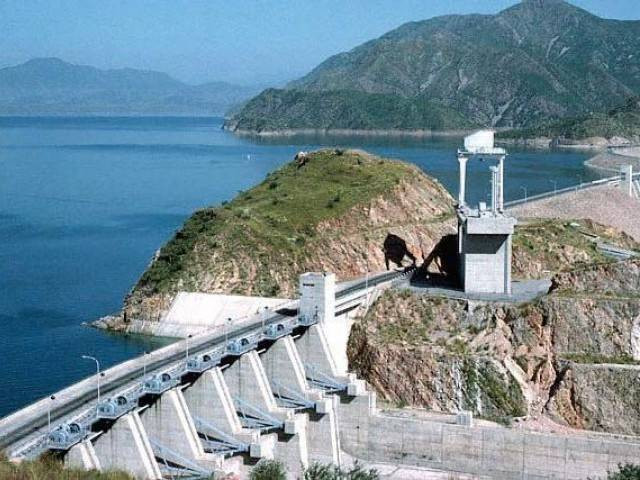Fair distribution: IRSA approves water share of provinces, sees no shortage
Expects up to four spells of rain in April, above-normal showers in May and June

Expects up to four spells of rain in April, above-normal showers in May and June. PHOTO: FILE
In summer, power consumers normally face a hard time as they endure hours-long outages, but adequate water supplies this time will boost electricity production and ease the pain of load-shedding.
The water regulator’s advisory committee, chaired by Irsa Chairman Rao Irshad Ali Khan, approved the water share of provinces in a meeting on Thursday, which was attended by representatives of provinces.

The Kharif cropping season starts from April-June and runs until October-December in different parts of the country. Rice, sugarcane, cotton, maize and mash are some of the key crops of the season.
Irsa projected that 112.85 million acre feet (maf) of water would be available in rivers, of which 16 maf would go down into the sea.
According to a senior government official, Irsa expects availability of 74.4 maf of water for distribution among provinces. The advisory committee has allocated 37.1 maf to Punjab, 33.9 maf to Sindh, 2.6 maf to Balochistan and 0.82 maf to Khyber-Pakhtunkhwa.
“The consumption of one million acre feet has an impact of $1 billion on the economy, which means Pakistan will be facing a loss of $16 billion due to the wastage as reservoirs are not too many,” the official said, adding system losses would stand at 15 maf.
Irsa spokesman Khalid Rana announced that provinces would face no water shortage in the Kharif season and that would lead to production of bumper crops.
“During Kharif, dams had earlier been maintaining no water stock but this time they have 3.5 maf of carryover stock,” he said, adding ample rains from January to March had provided sufficient water for the sowing season.
According to a forecast of the Pakistan Meteorological Department, the spokesman pointed out, Pakistan would experience three to four spells of rain in April, which would boost water supplies. In May and June too, the country would have above-normal showers.
He revealed that the Water and Power Development Authority (Wapda) had suggested that it would be able to keep water level in Tarbela at 1,490 feet in July, 20 feet below the normal level of 1,510 feet.
“We have told Wapda to keep water at this level until July 15,” he said, adding Wapda was working on the Tarbela fourth extension project with a 1,450-megawatt generation capacity.
At present, the water storage capacity of the country stands at 14 maf whereas its annual consumption requirement is 117 maf. Pakistan has only two major dams - Tarbela and Mangla. The former was built in 1977 and its storage capacity has dropped to 6.4 maf against 9.4 maf earlier. However, the Mangla Dam’s capacity has been enhanced by 3 maf to 7.4 maf following a structure-raising project.
According to officials, this addition has resolved a water dispute between Sindh and Punjab - the two major crop-growing provinces. Earlier, Irsa was required to open the Chashma-Jhelum link canal to provide water to Punjab, which had sparked a row between the two provinces.
Pakistan has the potential to produce 100,000MW of hydroelectric power, of which the identified potential stands at 60,158MW, but only 6,919MW has so far been tapped.
The private sector contributes 7,423MW to the thermal power generation and only 84MW to hydroelectric power. The government should learn lessons from frequent floods and construct dams for production of cheap electricity and storing water for agriculture crops in an effort to boost the economy.
Published in The Express Tribune, April 1st, 2016.
Like Business on Facebook, follow @TribuneBiz on Twitter to stay informed and join in the conversation.



















COMMENTS
Comments are moderated and generally will be posted if they are on-topic and not abusive.
For more information, please see our Comments FAQ